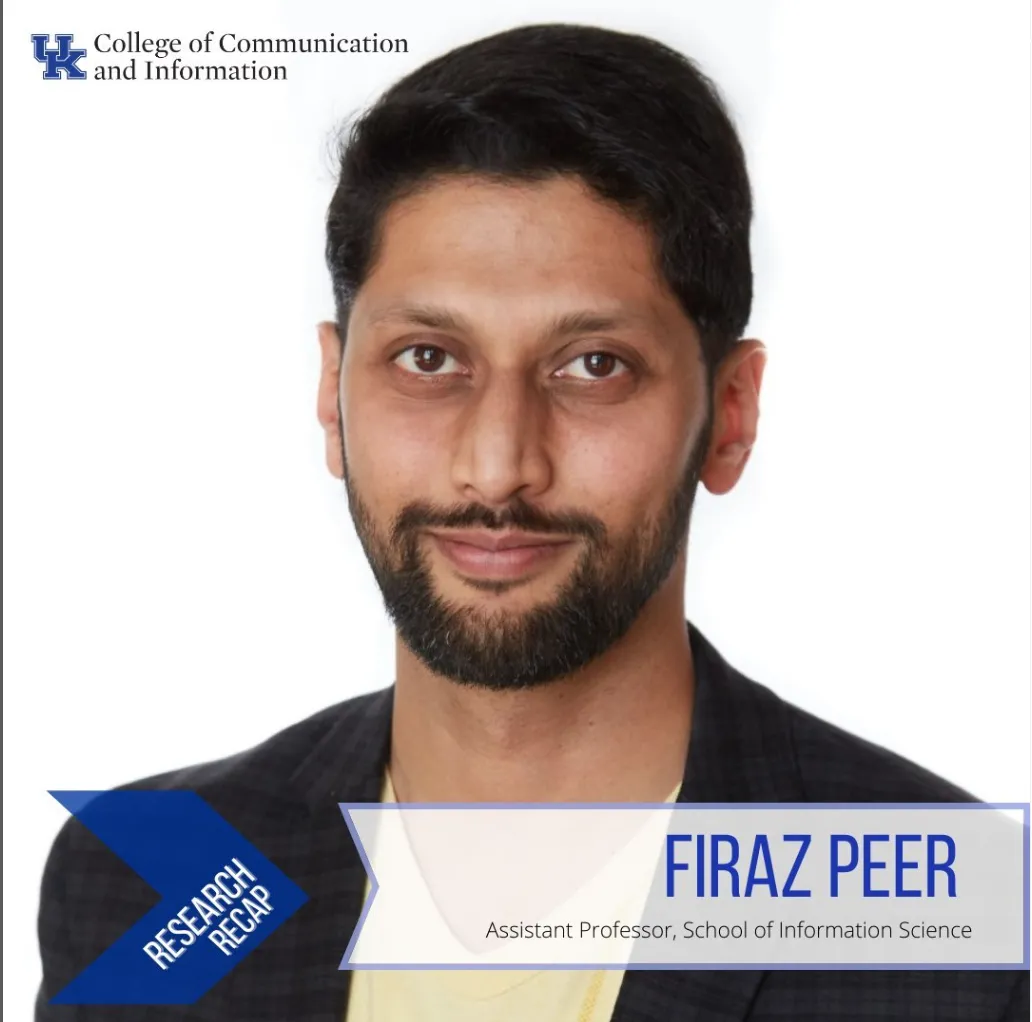Firaz Peer, an assistant professor in the School of Information Science, focuses his research on the interesting link between communities and how they use technology. Peer said his research falls into the field of human-computer interaction, a subfield of computer science that includes everything from psychology to design to the study of how interfaces are designed and developed and then used by humans.
Peer’s research focuses on more than just individual interaction by looking at how entire communities of people use technology. Peer started this community-based research route in his Ph.D. program at Georgia Tech.
“I did my masters and the kind of work I did was not community-based; it was just the design of novel interfaces for interaction. The more I designed those sorts of interfaces, the more I felt like I was missing the bigger picture of how it's being used by the folks that I've designed it for. In doing my Ph.D., my focus shifted to understanding how this design is impacting communities and, in turn, how communities can influence the design of your technology,” Peer said.
This realization led to the eventual creation of his dissertation which focused on creating, testing and editing a community data dashboard. in Atlanta’s West Side. The dashboard contains information on the community’s education, demographics, environment, transportation, resources and even a historic timeline of events in the area.
“It was basically a way to give information about the community to those who needed it and also a way to celebrate the community,” Peer said. “[The community] has a lot of assets, but it had been ignored and had fallen on hard times. So the idea with this dashboard was to give the community the data they needed to advocate for change and revive it back to its past glory.”
Peer is looking to continue community-based research here in Lexington with a new project that focuses on the refugee population and their exposure and utilization of information on substance use disorder. Peer said the project will look at how and if the refugee population accesses information on substance use disorder along with how the population understood, utilized or was impacted by having access to that information. The project proposal is currently under review by the Institutional Review Board at UK.
Aside from the results of his research, Peer said he has learned several meaningful lessons that extend beyond academia and into the corporate world.
“A lot of folks don't realize how much these communities know about what they need from technologies,” Peer said. “Folks sitting in Silicon Valley designing Facebook or Zoom may assume it’s pretty straightforward. Communities are different and their access to technologies is different. So, having this open communication between the designers and the communities that you're designing for is really important, and that can reveal a lot about what they need and what you can offer.”
In the end, Peer said it really boils down to making a meaningful impact with the technologies we’re developing.“It's hard for you as an individual to make a difference with the kinds of research that you do, but by involving these communities and getting their perspective, it makes your job a lot easier,” Peer said.
